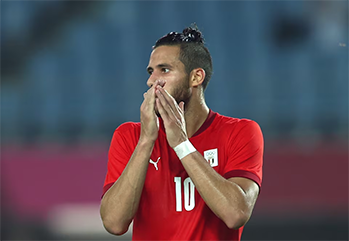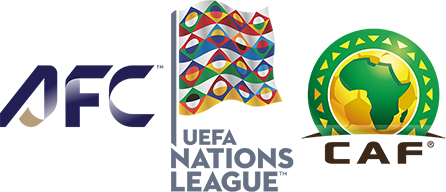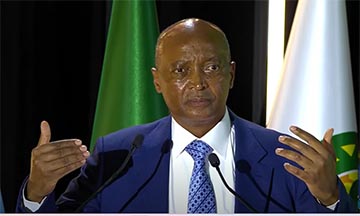International Football
World Cup Corruption Report out Today
Barring last minute changes, the previously unseen details from Michael Garcia’s 403-page report into allegations of corruption behind the bidding process for FIFA’s 2018 and 2022 World Cups will be published this Tuesday.
Sports Village Square has gathered from US-based Sporting News Media that the report written by former independent ethics investigator Michael Garcia on behalf of FIFA, courted controversy when a severely abridged version was released in 2014.
In protest, the author left the Sepp Blatter – led FIFA which had watered down the original 403 report into a 42 –page document which it called the “legally appropriate version”.
Based on the edited version, Qatar, the designated hosts for the 2022 FIFA World Cup, was cleared of corruption charges. That was despite claims by a German publication, Bild, which stated it had in its possession details of a $2 million that was paid to the 10-year old daughter of a FIFA official.
Bild , according to reports Sports Village Square gathered from America’s Sporting News Media, also suggests three FIFA executive members were flown to a party in Rio de Janeiro in a private jet belonging to the Qatar FA before the vote for who would host the 2018 and 2022 World Cup finals more than six years ago.
The Aspire Academy, an influential sports organisation in Qatar, has been accused of “being decisively involved in the manipulation of FIFA members with a right to vote” for the 2022 finals, according to Bild.
However, in November 2014 the head of FIFA’s ethics committee, Hans Joachim Eckert, said that his team “did not find any violations or breaches of the relevant rules and regulations” and cleared Qatar of corruption charges.
“The potentially problematic facts and circumstances identified by the report concerning the Qatar 2022 bid were, all in all, not suited to compromise the integrity of the 2018/22 bidding process as whole,” he added.
Should Bild‘s alleged full report — which it intends to reveal details of in numerous articles across Tuesday — make any substantial claims to the contrary, it could drag FIFA back into a corruption quagmire it’s been fighting to climb out of for several years.
Garcia cited “a lack of leadership” upon his resignation, but Gianni Infantino has since replaced Sepp Blatter as president of the football’s world governing body.
French and Swiss prosecutors are already investigating the bidding process and FIFA’s alleged participation in malpractice, with Blatter having been questioned as a witness in April of this year.
Both the US and the UK failed in the 2010 bidding process to secure World Cup finals, with the latter heavily criticised in the abridged Garcia report that FIFA published.
International Football
Egypt’s Sobhi sentenced to a year in prison in academic fraud case

Egypt international Ramadan Sobhi, who helped Pyramids win their first CAF Champions League title last season and previously played in the English Premier League, has been sentenced to one year in prison in connection with an academic fraud case, local media reported on Tuesday.
Sobhi was arrested in July upon returning from Turkey, where Pyramids had completed a pre-season camp, following allegations of falsifying official documents and having another individual sit for exams on his behalf at a private tourism and hospitality institute in Giza Governorate, Central Egypt.
The Giza Criminal Court sentenced 28-year-old Sobhi on Tuesday and a second defendant to one year with labor, acquitted a third, and handed a 10-year sentence in absentia to a fourth, who is a fugitive.
Sobhi’s lawyer could not be reached immediately for comment.
In addition to the prison sentence, Sobhi faces a four-year suspension after the Court of Arbitration for Sport confirmed violations of anti-doping regulations in November.
Sobhi, who has played 37 times for Egypt, began his career at Al-Ahly before moving to England in 2016, where he played for Stoke City and Huddersfield Town.
Sobhi joined Pyramids in 2020 from Huddersfield Town, following a loan spell at Al-Ahly, and played a key role in helping Pyramids secure their first CAF Champions League title after defeating Mamelodi Sundowns in the final.
Reuters
Join the Sports Village Square channel on WhatsApp: https://whatsapp.com/channel/0029Vaz7mEIGk1FxU8YIXb0H
International Football
Asian Football Confederation To Launch Nations League Following CAF Move

The Asian Football Confederation has announced plans to introduce an AFC Nations League, just a day after the Confederation of African Football unveiled a similar competition for its member associations.
In a statement released on Sunday, the Kuala Lumpur-based governing body said the new tournament is aimed at improving competition standards and commercial opportunities for national teams across Asia.
While no start date was announced, the AFC confirmed that the competition will be staged during existing FIFA international windows, avoiding congestion in the global football calendar.
AFC General Secretary Windsor John described the initiative as a strategic development tool for the continent’s national teams.
“The AFC Nations League represents an important step forward in our ongoing commitment to support the development of our 47 member associations,” John said.
“By introducing a structured competition platform, we aim to ensure consistent access to high-quality matches while addressing logistical and cost-related challenges faced by national teams.”
The AFC currently organises the Asian Cup every four years, with the next edition of the 24-team finals scheduled to take place in Saudi Arabia in January 2027.
The proposed Nations League would complement the flagship tournament by providing regular, competitive fixtures between Asian national teams.
Asia and Africa now follow a path already taken by Europe, where UEFA launched its own Nations League in 2018. The UEFA competition was designed to replace low-profile friendlies with more meaningful matches, a model that has since been adopted or adapted by other confederations.
With CAF and AFC both moving towards Nations League formats, global football appears to be entering a new era in which structured inter-national competitions increasingly replace traditional friendly matches, offering greater sporting value and commercial appeal.
Join the Sports Village Square channel on WhatsApp: https://whatsapp.com/channel/0029Vaz7mEIGk1FxU8YIXb0H
International Football
CAF Launches African Nations League to Reshape Continental Calendar

The Confederation of African Football (CAF) has announced the creation of a new continental competition, the African Nations League, marking another major reform in African football.
The announcement was made on Saturday, December 20, in Rabat by CAF President Patrice Motsepe, shortly before he unveiled the historic decision to stage the Africa Cup of Nations every four years from 2028.
Modelled along the lines of Europe’s Nations League system, the African Nations League is designed to provide competitive fixtures for national teams outside the AFCON cycle, while also boosting the commercial and sporting value of international football on the continent.
According to Motsepe, the new competition will be held annually between September and December, beginning in 2029. Matches will be played strictly within the international windows approved by FIFA, ensuring that the tournament does not disrupt domestic leagues or club competitions.
CAF confirmed that Africa will be divided into four zones for the purposes of the competition, a structure aimed at reducing travel demands while maintaining high-level competition across the continent. Further details on the format, promotion and relegation system, and prize money are expected to be released at a later date.
The launch of the African Nations League, coming alongside the shift of AFCON to a four-year cycle, signals CAF’s intention to modernise its calendar, improve player welfare, and create more meaningful international matches for African national teams throughout the season.
Join the Sports Village Square channel on WhatsApp: https://whatsapp.com/channel/0029Vaz7mEIGk1FxU8YIXb0H
-

 feature4 days ago
feature4 days agoFederal Government Reaffirms Commitment to Federal Character Principle
-

 WOMEN'S FOOTBALL1 week ago
WOMEN'S FOOTBALL1 week agoFalconets Confident Ahead of Senegal Clash in U20 World Cup Qualifiers
-

 Nigerian Football1 week ago
Nigerian Football1 week agoEchoes of 1987: Kun Khalifat FC League Withdrawal Revives Old NPFL Wounds
-

 CAF Champions League6 days ago
CAF Champions League6 days agoLike Remo Stars, Rivers succumb to a 7–1 aggregate defeat in the CAF Champions League
-

 Olympics1 week ago
Olympics1 week agoAfrica Records Biggest Winter Olympics Delegation in Years at Milano-Cortina
-

 WOMEN'S FOOTBALL6 days ago
WOMEN'S FOOTBALL6 days agoBrazil Marks 500-Day Countdown to FIFA Women’s World Cup 2027
-

 WOMEN'S FOOTBALL1 week ago
WOMEN'S FOOTBALL1 week agoIfeanyi Header Gives Falconets Narrow Win Over Senegal
-

 World Cup1 week ago
World Cup1 week agoMorocco Denies Reports of Regragui’s Resignation as Atlas Lions’ Coach




